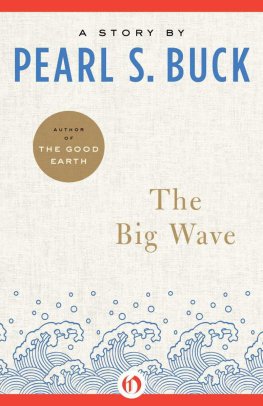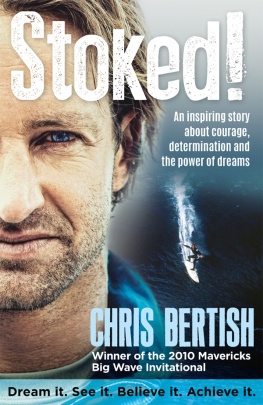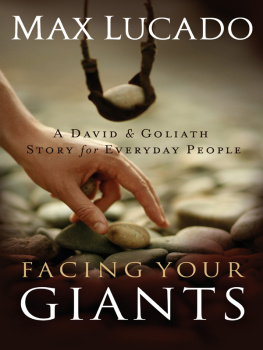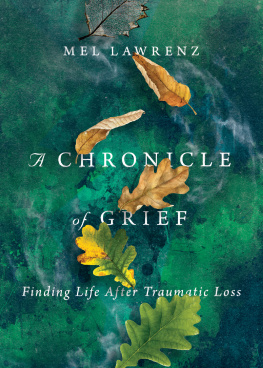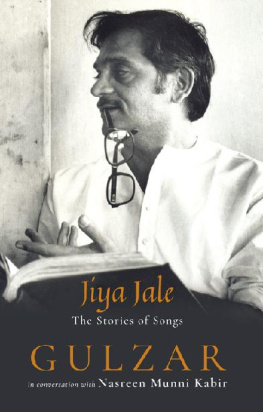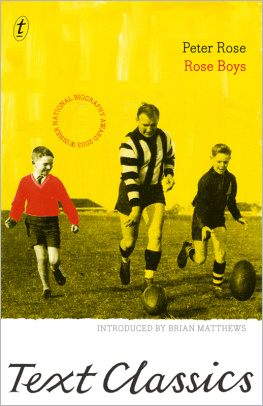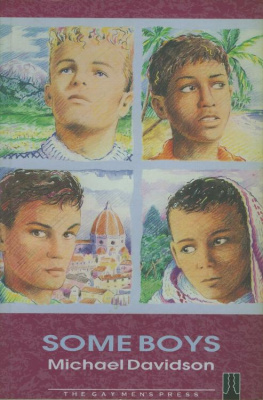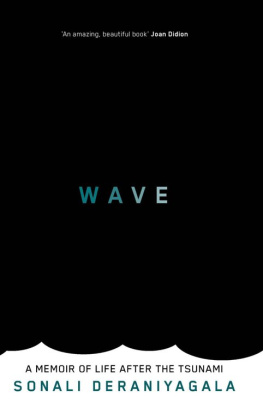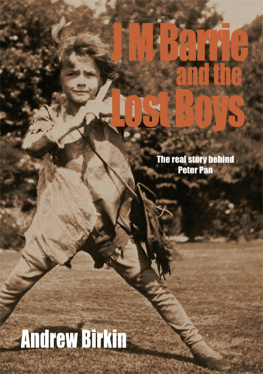Pearl S. Buck
The Big Wave
KINO LIVED ON A farm. The farm lay on the side of a mountain in Japan. The fields were terraced by walls of stone, each one of them like a broad step up the mountain. Centuries ago Kinos ancestors had built the stone walls that held up the fields.
Above all the fields stood the farmhouse that was Kinos home. Sometimes he felt the climb was a hard one, especially when he had been working in the lowest field and he wanted his supper. But after he had eaten at night and in the morning, he was glad that he lived so high up because he could look down on the broad blue ocean at the foot of the mountain.
The mountain rose so steeply out of the ocean that there was only a strip of sandy shore at its foot. Upon this strip was the small fishing village where Kinos father sold his vegetables and rice and bought his fish. From the window of his room Kino looked down upon the few thatched roofs of the village, running in two uneven lines on both sides of a cobbled street. These houses faced one another, and those that stood beside the sea did not have windows toward it. Since he enjoyed looking at the waves, Kino often wondered why the village people did not, but he never knew until he came to know Jiya, whose father was a fisherman.
Jiya lived in the last house in the row of houses toward the ocean, and his house did not have a window toward the sea either.
Why not? Kino asked him. The sea is beautiful.
The sea is our enemy, Jiya replied.
How can you say that? Kino asked. Your father catches fish from the sea and sells them and that is how you live.
Jiya only shook his head. The sea is our enemy, he repeated. We all know it.
It was very hard to believe this. On hot sunny days, when he had finished his work, Kino ran down the path that wound through the terraces and met Jiya on the beach. They threw off their clothes and jumped into the clear sea water and swam far out toward a small island which they considered their own. Actually it belonged to an old gentleman whom they had never seen, except at a distance. Sometimes in the evening he came through the castle gate and stood looking out to sea. Then they could see him, leaning on his staff, his white beard blowing in the wind. He lived inside his castle behind a high fence of woven bamboo, on a knoll outside the village. Neither Kino or Jiya had ever been inside the gate, but sometimes when it was left open they had peeped into the garden. It was beautiful beyond anything they could imagine. Instead of grass the ground was covered with deep green moss shaded by pine trees and bamboos, and every day gardeners swept the moss with bamboo brooms until it was like a velvet carpet. They saw Old Gentleman walking under distant trees in a silver-gray robe, his hands clasped behind his back, his white head bent. He had a kind, wrinkled face, but he never saw them.
I wonder if it is right for us to use his island without asking? Kino asked today when they reached its beach of smooth white sand.
He never uses it himself, Jiya replied. Only the sacred deer live here.
The island was full of sacred deer. They were not afraid, for no one hurt them. When they saw the two boys they came to them, nuzzling into their hands for food. Sometimes Kino tied a little tin can of cakes about his waist and brought them with him to feed the deer. But he seldom had a penny, and now he reached high and picked the tender shoots of the rushes for them. The deer liked these very much and they laid their soft heads against his arm in gratitude.
Kino longed to sleep on the island some night, but Jiya was never willing. Even when they spent only the afternoon there he looked often out over the sea.
What are you looking for? Kino asked.
Only to see that the ocean is not angry, Jiya replied.
Kino laughed. Silly, he said. The ocean cannot be angry.
Yes, it can, Jiya insisted. Sometimes the old ocean god begins to roll in his ocean bed and to heave up his head and shoulders, and the waves run back and forth. Then he stands upright and roars and the earth shakes under the water. I dont want to be on the island then.
But why should he be angry with us? Kino asked. We are only two boys, and we never do anything to him.
No one knows why the ocean grows angry, Jiya said anxiously.
But certainly the ocean was not angry this day. The sun sparkled deep into the clear water, and the boys swam over the silvery surface of rippling waves. Beneath them the water was miles deep. Nobody knew how deep it was, for however long the ropes that fishermen let down, weighted with iron, no bottom was ever found. Deep the water was, and the land sloped swiftly down to that fathomless ocean bed. When Kino dived, he went down down down, until he struck icy still water. Today when he felt the cold grasp his body he understood why Jiya was afraid, and he darted upward to the waves and the sun.
On the beach he threw himself down and was happy again, and he and Jiya searched for pebbles, blue and emerald, red and gold. They had brought little baskets woven like bags, which they had tied with string around their waists, and these they filled with the pebbles. Jiyas mother was making a pebble path in her rock garden, and nowhere were the pebbles so bright as on Deer Island.
When they were tired of the beach they went into the pine forest behind it and looked for caves. There was one cave that they always visited. They did not dare to go too deep into it, for it stretched downward and under the ocean. They knew this, and at the far end they could see the ocean filling it like a great pool and the tides rose and fell. The water was often phosphorescent and gleamed as though lamps were lighted deep beneath the surface. Once a bright fish lay dead on the rocky shore. In the dark cave it glittered in their hands, but when they ran with it into the sunshine, the colors were gone and it was gray. When they went back into the cave, it was bright again.
But however good a time they had on the island, Jiya looked often at the sun. Now he ran out on the beach and saw it sinking toward the west and he called to Kino.
Come quickly we must swim home.
Into the ocean, ruddy with sunset, they plunged together. The water was warm and soft and held them up, and they swam side by side across the broad channel. On the shore Jiyas father was waiting for them. They saw him standing, his hands shading his eyes against the bright sky, looking for them. When their two black heads bobbed out of the water he shouted to them and waded out to meet them. He gave a hand to each of them, pulling them out of the white surf.
You have never been so late before, Jiya, he said anxiously.
We were in the cave, Father, Jiya said.
But Jiyas father held him by the shoulders. Do not be so late, he said, and Kino, wondering, looked at him and saw that even this strong fisherman was afraid of the anger of the sea.
He bade them good night and climbed the hill to his home and found his mother ready to set the supper on the table. The food smelled delicious hot fragrant rice, chicken soup, brown fish.
No one was worried about Kino. His father was washing himself, pouring water over his face and head with a dipper, and his little sister, Setsu, was fetching the chopsticks.
In a few minutes they were all sitting on the clean mat around a low square table, and the parents were filling the childrens bowls. Nobody spoke, for it is not polite to speak until the food is served and everybody has had something to eat.
But when the supper was over and Kinos father was drinking a little hot wine out of a very small cup, and his mother was gathering together the black lacquered wood rice bowls, Kino turned to his father.
Father, why is Jiya afraid of the ocean? he asked.

